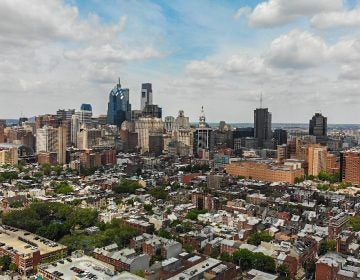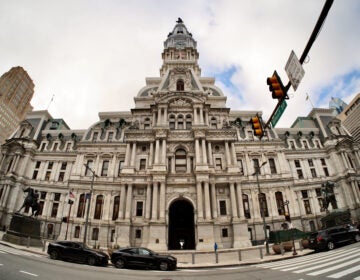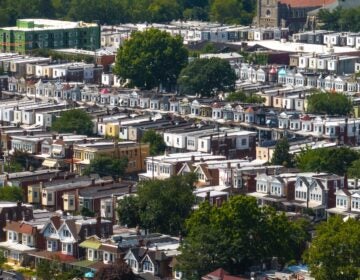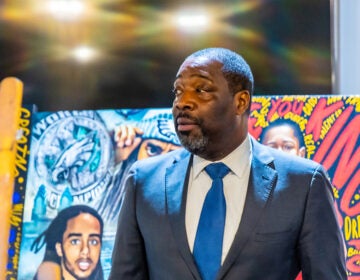Kenney to propose $5.6 billion Philly budget with more than $184 million to fight violence
Philadelphia’s more than $5 billion spending plan is designed to promote racial equity while also trying to make the city safer and better for all.
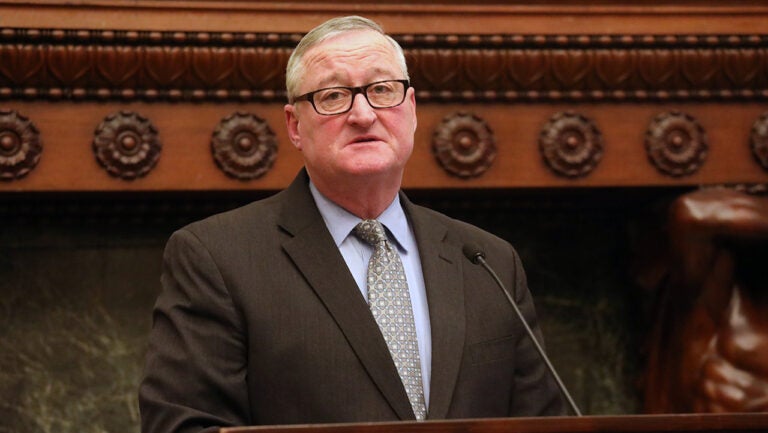
Philadelphia Mayor Jim Kenney. (Samantha Madera/City of Philadelphia)
Mayor Jim Kenney’s delivery of a pre-taped address during City Council’s weekly meeting Thursday officially starts the city’s review and negotiations over his proposed $5.6 billion operating budget for Philadelphia with an emphasis on racial equity.
In a pre-budget meeting with reporters Wednesday afternoon, Budget Director Marisa Waxman said the goal is to look at racial equity from a number of new angles, including making the staff that serves the people of the city more reflective of those who live and work in Philadelphia.
“We want to make sure that we are engaging Philadelphians where they are and particularly Black and Brown Philadelphians to come into our workforce,” Waxman said.
She explained the mayor is working on ways to fight violence, with a proposal to spend more than $184 million in new money for anti-violence investments. An additional $3 million will be devoted to Kensington for efforts yet to be determined to aid in dealing with the drug crisis that has plagued that area of the city.
The budget does not include any tax increases, but does add some fees for those who live and work in the city. It also leaves only a narrow cushion of just over $150 million in what’s referred to as the fund balance. That’s the money left over after subtracting the spending proposed from expected revenue. Kenney’s proposed fund balance is far less than the 6% that most city finance experts believe is appropriate for a city the size of Philadelphia.
The budget is also assuming that 25% of people who live outside the city but worked in Philadelphia in past years will not return to town. Those former commuters who’ve transitioned to working from home outside the city will not have to pay the wage tax even though they work for Philadelphia-based companies.
Finance Director Rob Dubow said they don’t know when they will see that revenue decline, because employers can decide not to withhold the tax, or workers can seek a refund.
The city is using Federal Rescue Plan funds to help balance the budget. About $335 million will be devoted to boosting sagging tax revenues that were lost due to the pandemic.
An upcoming release of new real estate valuations will most likely bring in more tax revenue since the value of homes has been rising, and new assessments will reflect those changes, Dubow said.
There was mixed reaction to the budget from council members who were briefed in advance of the mayor’s address.
Councilmember Cherelle Parker said the city needs to address the exodus of “31,000 Black people from Philadelphia since the last census,” and called for an improvement in “quality of life issues.” Those investments should include installing more cameras to help fight crime, and stopping short dumping in communities, Parker said.
She added budget is not a competition.
“This is not an either/or, it needs to be a comprehensive review with all hands-on deck, including more support for community policing,” she said. “We will peel back the layers and do what we do during the budget process,” adding changes will be made to help keep people in Philadelphia.
Councilmember Maria Quinones Sanchez added the budget needs “to deploy city services where they are most needed, in historically underserved and marginalized neighborhoods.”
She said CLIP should be extended to every neighborhood. CLIP is the Community Life Improvement program, which is used to enforce quality-of-life violations and improve the appearance of neighborhoods.
“In Kensington, where there is especially high need due to the ongoing public health and safety crisis, we need a specific crew to ensure that other neighborhoods don’t lose essential services,” Sanchez said as an example of the need for assistance in one neighborhood.”
Councilmember Derek Green said “bold leadership” is necessary.
“My concern is that we’re not using American Rescue Plan dollars to really be a leader,” he said. That federal money should be used “to draw people to the city of Philadelphia while providing family-sustaining wages for the residents of the city,” he said.
Kevin Lessard, the mayor’s spokesperson, said the Kenney administration is “looking forward to working with council members to get to a resolution in June for a budget that hopefully everyone can support.”
Hearings on the spending plan, which involve testimony from managers in all the major city departments, begin on April 7 and run through May 25. A full copy of the budget is posted on the city’s website.
Public testimony on the budget is set for April 12. Public comments on the school district portion of the budget plan will be held on May 4.
WHYY is your source for fact-based, in-depth journalism and information. As a nonprofit organization, we rely on financial support from readers like you. Please give today.




